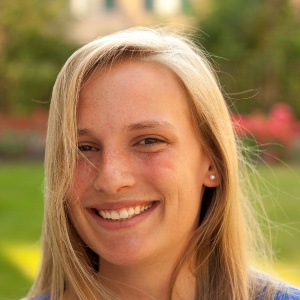The Special Interest Group Data Infrastructure offers a forum to interested working groups that want to set up or further develop an RDM infrastructure at working group or institute level. We invite you to a monthly SIGDIUS seminar, to which we invite internal and external experts for presentations and discussions. SIGDIUS members will have the opportunity to exchange their experiences with concrete RDM infrastructures.
We cordially invite all interested parties to our next meeting on 6 May 2020. Due to the current situation, this seminar will be held as an online seminar. For participation, please send an e-mail to Juergen.Pleiss@itb.uni-stuttgart.de with the subject line "SIGDIUS seminar 6.5."
Heidi Seibold* (LMU München) will talk about "Research Software Engineers and Their Role for Open and Reproducible Research"
Many of the proposed solutions to the reproducibility crisis are technical solutions. Open and reproducible research require researchers to learn new technical skills. In this talk I will show some of the tools and strategies I use to make my research open and reproducible. I argue that not all researchers can become experts in these tools and strategies. Instead we need research software engineers (RSEs) and reproducibility support.
Leonardo Gizzi (IMSB, Uni Stuttgart) will talk about "Treating neuromechanical data for reproducibility: the hard lesson I am learning"
* Heidi Seibold is a data science researcher and research software engineer. She believes that good research is reproducible, reusable and open and spends most of her time trying to improve the way we do research. She is a member of the LMU Open Science Center, a member of the Knowledge Exchange Open Scholarship expert group and a core member of OpenML. She teaches machine learning, R, and open and reproducible research. Heidi studied statistics at LMU Munich and did her PhD in computational Biostatistics at the University of Zurich. She worked as lead of the DIFUTURE analysis group, as deputy professor of biostatistics at LMU, and is currently working at LMU Munich, Bielefeld University and Helmholtz Zentrum München.
At the University of Stuttgart an increasing number of working groups want to comply with the FAIR Data Principles. Therefore they want to use a laboratory-information-management-system / electronic laboratory book (LIMS/ELN) for their experimental work or a documentation system for simulation work. Such systems are used for data integration and facilitate for example the connection of experimentally acquired data to the respective modelling environment.
The development of methods, standards and tools for research data management (RDM) is currently very dynamic; the scientific fields are fragmented in terms of processes and standards. This fragmentation is particularly evident in a number of about 300 existing LIMS/ELN products, which on the one hand offer very specific solutions for individual applications and on the other hand try to serve a broad spectrum of users. Under these conditions, it is difficult to select the appropriate RDM strategy.


